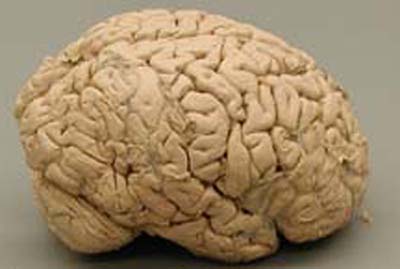Biology- Genetics
- Diversity
- Continuity
- Adaptiveness



And for Hedwig House - 8 August 2002 (see photos)
| The Medical Model | The Biological/Neurobiological Model |
|---|---|
|
presumption of "illness" as distinct category presumption of perfectibility presumption of all people as aspiring to same "ideal" presumption of "patient" as object search for efficient "quick fix" therapies neglects (particularly for "mental health") to deal with important issues of personal responsibility, cultural influences |
accepts existence of continuous variation among individuals, both now and in future - indeed encourages diversity
emphasizes importance of innate influences, as well of experience and of personal choice acknowledges that some kinds of changes take extended time at best, may not be achievable at worst incorporates cultural context dependence helps to define both potentials and limits of personal responsibility |
Biology
| 
|  
| Brain ... summary
|
Some further implications of the biological/neurobiological model:

|
| Headaches | Anxiety |
|---|---|
|
|
| ... I have of late - but wherefore I know not - lost all my mirth, forgone all custom of exercises; and indeed it goes on so havily with my disposition that this goodly frame, the earth, seems to me a sterile promontory, this most excellent canopy, the air, look you, this brave o'erhanging firmanent, this majestical roof fretted with golden fire, why, it appears no other thing to me than a foul and pestilent congregation of vapors. What a piece of work is man! how noble in reason! how infinite in variety! in form and moving how express and admirable! in action how like an angel! in apprehension how like a god! the beauty of the world! the paragon of animals! And yet, to me, what is this quintessence of dust? man delights not me; no, nor woman neither, though by your smiling you seem to say so. .... William Shakespeare, Hamlet
I felt a funeral in my brain,
And when they were all seated,
And then I heard them lift a box,
As all the heavens were a bell,
I have notic'd in the Writings of the French Mysticks, & in those of our fanatics here, that, when they give a History of the Situation of their Souls, they mention a Coldness & Desertion of the Spirit, which frequently returns, & some of them, at the beginning, have been tormented by it for many Years. As this kind of Devotion depends entirely on the Force of Passion, & consequently the Animal Spirits, I have often thought that their Case & mine were pretty paralel, & that their rapturous Admirations might discompose the Fabric of the Nerves & Brain, as much as profound Reflections, & that warmth or Enthusiasm which is inseparable from them
My daughter Ashley, an engaging, highly intelligent, beautiful, and artistically talented teeanger, suffers from a life threatening genetic illness. It is an illness of extremes with a high, some estimates are as much as 20%, mortality rate. It is sometimes, as with my daughter, difficult to treat. It is always difficult for those so afflicted and their families. The contemporary nomenclature for this disease is Bi-Polar Disorder. But I prefer the more descriptive, no longer politically correct name, Manic Depression.
Today I am a strong, healthy woman who, quite frankly, did not expect to live to see adulthood ... Manic-depression is part of my life. I cannot deny that. It is encoded in my genes. But that doesn't mean it has to rule my life -- and I haven't let it. |
"a sterile promontory ...man delights not me, nor women either" |
To go on exploring ...
Charles Nemeroff (1998) The Neurobiology of Depression, Scientific American, June
Kaye Redfield Jamison, An Unquiet Mind, Vintage Books, 1995
Kaye Redfield Jamison, Touched with Fire, Free Press, 1993
T.M. Luhrman, Of Two Minds, Vintage, 2001
Casey, Nell (ed), Unholy Ghost: Writers on Depression, Perennial, 2002
Mental Health, an extensive set of resources from the Center for Science in Society and Serendip
Brain and Behavior, resources from Serendip
Topics in Brain and Behavior, index to student web papers on topics including depression and bipolar syndrome
Who's Afraid of Emily Dickinson? Or ... How I Learned to Stop Worrying and Love the Brain, an article on the brain and psychotherapy
Add your thoughts in an on-line forum area ... Help others by sharing your ideas/experiences
Home
| Calendar | About
| Getting Involved
| Groups | Initiatives | Bryn Mawr Home | Serendip Home
Director: Liz McCormack -
emccorma@brynmawr.edu
| Faculty Steering Committee
| Secretary: Lisa Kolonay
© 1994-
, by Center for Science in Society, Bryn Mawr College and Serendip
Last Modified:
Wednesday, 02-May-2018 10:51:17 CDT